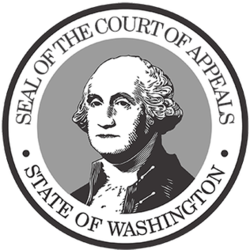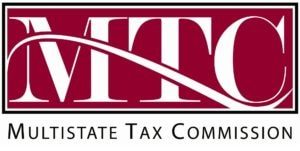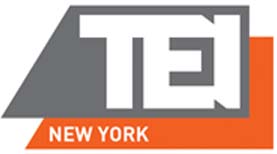 The Washington Court of Appeals held that Gartner, Inc.’s online research service was a digital automated service subject to the state’s retail sales tax and retailing Business and Occupation (B&O) Tax. Gartner, Inc. v. Washington Department of Revenue, No. 51637-3-II (Wash. App. Div. 2 Jan. 13, 2020). This decision addressed the scope of Washington’s “human effort” exclusion from the retail sales tax, the applicability of the “bundled transaction” and “true object” tests to offerings that contain taxable and nontaxable components, and the Internet Tax Freedom Act.
The Washington Court of Appeals held that Gartner, Inc.’s online research service was a digital automated service subject to the state’s retail sales tax and retailing Business and Occupation (B&O) Tax. Gartner, Inc. v. Washington Department of Revenue, No. 51637-3-II (Wash. App. Div. 2 Jan. 13, 2020). This decision addressed the scope of Washington’s “human effort” exclusion from the retail sales tax, the applicability of the “bundled transaction” and “true object” tests to offerings that contain taxable and nontaxable components, and the Internet Tax Freedom Act.
Articles Tagged with Technology
“Interactive” Website Will Defeat P.L. 86-272 Immunity If the MTC Has Its Way
 The Multistate Tax Commission (MTC) is updating its Public Law 86-272 guidance, “Statement of Information Concerning Practices of Multistate Tax Commission and Signatory States under Public Law 86-272,” to address internet activities. This guidance was last updated in 2001. The latest draft guidance, dated October 15, 2019, provides examples of when the use of an “interactive” website will defeat P.L. 86-272 immunity, even if the company has no other contact with the customer’s state. Such examples include:
The Multistate Tax Commission (MTC) is updating its Public Law 86-272 guidance, “Statement of Information Concerning Practices of Multistate Tax Commission and Signatory States under Public Law 86-272,” to address internet activities. This guidance was last updated in 2001. The latest draft guidance, dated October 15, 2019, provides examples of when the use of an “interactive” website will defeat P.L. 86-272 immunity, even if the company has no other contact with the customer’s state. Such examples include:
- providing post-sale assistance to customers via either electronic chat or email accessed through a website link;
- soliciting and receiving online applications for branded credit cards;
- inviting viewers to apply for employment;
- contracting with a marketplace facilitator, whose marketplace offers for sale the company’s products via a website and maintains the company’s inventory;
- inserting internet “cookies” into the computers or other electronic devices of customers; or
- remotely fixing products via the internet and WiFi.
Having one of the listed internet activities—by itself—would cause a company that has limited its in-state activities to solicitation of sales to lose its P.L. 86-272 immunity according to the draft guidance. In effect, the MTC’s draft guidance would eviscerate P.L. 86-272 protection given today’s digital economy.
The October 15, 2019, draft “Statement of Information Concerning Practices of Multistate Tax Commission and Signatory States under Public Law 86-272” can be accessed here. More information can be found on the MTC’s web page.
Pillsbury SALT, TEI NY and “Sales Tax: Transformation in Action”
 Pillsbury is proud to partner with TEI’s NY Chapter to host their State & Local Chapter Meeting. Join Pillsbury SALT and TEI NY Chapter members for “Sales Tax: Transformation in Action.”
Pillsbury is proud to partner with TEI’s NY Chapter to host their State & Local Chapter Meeting. Join Pillsbury SALT and TEI NY Chapter members for “Sales Tax: Transformation in Action.”
In a presentation designed for sales tax compliance professionals at all levels, Sheila Rao, Senior Vice President, TEI NY Chapter, will present a step-by-step study of her company’s sales tax software implementation.
COST’s Inaugural 2019 State and Local Tax Workshop for Technology Companies
On July 23-24, members of Pillsbury SALT will lead discussions at COST’s much anticipated state and local tax technology workshop in Foster City, Calif. This one-and-a-half day event promises to deliver in-depth state and local tax content tailored to technology businesses—everything from startups to long established companies. The varied presentations are for those new to tax and those who are tax savvy.
Pillsbury SALT members will lead discussions on a number of topics, including:
- “Beware of the Locals—They Might Take You by Surprise” (Carley Roberts)
- “All Things Property Tax for Tech Companies” (Craig Becker)
- “Ask The Experts” (Jeffrey Vesely)
For more information and to register, please visit the event page.
The Evolution of Software as a Service Taxes Post-Wayfair
(This article originally was published by Law360 on May 17, 2019.)
In the last year, several state legislatures have enacted laws and several state courts have published decisions on whether software as a service, or SaaS, is subject to sales and use tax. These developments impact many SaaS providers, especially due to the expanded nexus provisions that many states are enacting after the United States Supreme Court’s South Dakota v. Wayfair Inc. decision.1 The states have gone in different directions—Indiana enacted legislation exempting SaaS, while Iowa and Rhode Island began taxing SaaS. The Massachusetts Appellate Tax Board and the Pennsylvania Board of Finance and Revenue have both issued decisions clarifying the taxability of SaaS offerings.
 SeeSALT Blog
SeeSALT Blog

